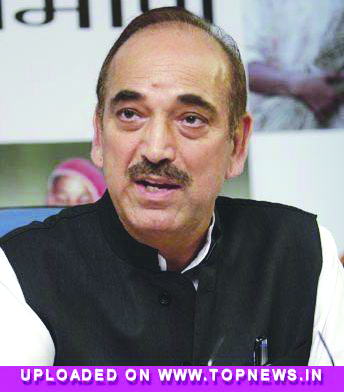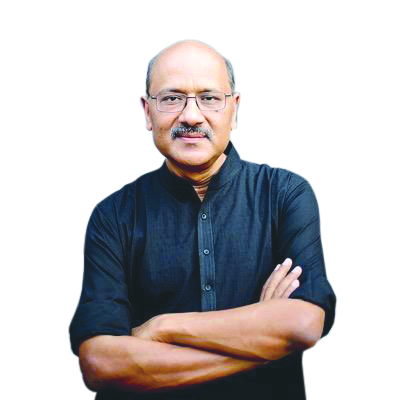ConTrolled
 Journalists who have been complaining that the Modi government has shut off access of the press to official sources by ensuring minimum or no interaction between babus, ministers and reporters, actually have an accurate and alternative route to gather info on the government’s (read the prime minister’s) policies—social media. Nothing more brazenly and openly reflects the party-government line on emerging policy initiatives and political tactics than the Hindutva troll brigade which is said to take its cue from the RSS-BJP IT cell. You no longer need to visit the Press Information Bureau, or sneak a meeting with a bureaucrat to fathom, for example, what the government’s new Kashmir policy will be after the bust up of the BJP-PDP alliance. All you need to do is to switch to Twitter where these trolls are identifiable by the trademark similarity of their tone, tenor, line, viciousness and venom.
Journalists who have been complaining that the Modi government has shut off access of the press to official sources by ensuring minimum or no interaction between babus, ministers and reporters, actually have an accurate and alternative route to gather info on the government’s (read the prime minister’s) policies—social media. Nothing more brazenly and openly reflects the party-government line on emerging policy initiatives and political tactics than the Hindutva troll brigade which is said to take its cue from the RSS-BJP IT cell. You no longer need to visit the Press Information Bureau, or sneak a meeting with a bureaucrat to fathom, for example, what the government’s new Kashmir policy will be after the bust up of the BJP-PDP alliance. All you need to do is to switch to Twitter where these trolls are identifiable by the trademark similarity of their tone, tenor, line, viciousness and venom.
On Kashmir (leaving out the wash-your-mouth-out-with-soap invective), no matter how politically polite BJP spokesman Ram Madhav and the Home Ministry may sound, the real line is: Sonia Gandhi/Rahul Gandhi/Ghulam Nabi Azad/Mehbooba are supporters of the Lashkar-e-Taiba and other terrorist groups which is why the BJP “sacrificed” its government in J&K. Branding opponents of crackdowns in the state as traitors and anti-Hindu/anti-nationals will be the new Hindutva hardline as the BJP prepares for the 2019 elections.
Liberal Arguments
 The scorn that Shekhar Gupta, Editor-in-Chief of The Print, has for liberals is well known. He recently dedicated a full column to criticise the “holier-than-cow Indian liberal elite”. What triggered the rant seems to be the criticism directed at Gupta from fellow journalism veterans on Twitter after The Print carried a column by former Modi/BJP cheerleader Rupa Subramanya detailing the reasons for her disenchantment with the saffron regime. Subramanya was a hardcore Modi supporter and routinely ridiculed critics of the ruling dispensation or its Supreme Leader. Recently, when she was subjected to the same medicine by fellow saffron admirers—a fact she explains in great detail in her column for The Print—Subra-manya had a change of heart. Many who had been trolled by Subramanya on social media platforms took exception to Gupta granting her a platform to vent her ire. Vir Sanghvi tweeted: “Ok. So if you know a writer has trolled people with abuse, has sneered at victims of acid attacks, etc. it is still OK to give that person your platform especially after she has done a political switch. Not criticising. Just curious to know where The Print stood.” Gupta replied: “A newsroom isn’t a police station or court to judge people for their online behaviour. To put it simply: if the chief minister who hurled an unprintable gaali at us wrote something printable for The Print, we’d publish it. Editorial skins should be thicker and shoulders broader.” Sanghvi’s retort was telling: “…It’s about standards. If we say we aren’t judges/policemen we lose the right to criticise Twitter, etc. for online abuse…more introspection and less pehalwani may be in order.”
The scorn that Shekhar Gupta, Editor-in-Chief of The Print, has for liberals is well known. He recently dedicated a full column to criticise the “holier-than-cow Indian liberal elite”. What triggered the rant seems to be the criticism directed at Gupta from fellow journalism veterans on Twitter after The Print carried a column by former Modi/BJP cheerleader Rupa Subramanya detailing the reasons for her disenchantment with the saffron regime. Subramanya was a hardcore Modi supporter and routinely ridiculed critics of the ruling dispensation or its Supreme Leader. Recently, when she was subjected to the same medicine by fellow saffron admirers—a fact she explains in great detail in her column for The Print—Subra-manya had a change of heart. Many who had been trolled by Subramanya on social media platforms took exception to Gupta granting her a platform to vent her ire. Vir Sanghvi tweeted: “Ok. So if you know a writer has trolled people with abuse, has sneered at victims of acid attacks, etc. it is still OK to give that person your platform especially after she has done a political switch. Not criticising. Just curious to know where The Print stood.” Gupta replied: “A newsroom isn’t a police station or court to judge people for their online behaviour. To put it simply: if the chief minister who hurled an unprintable gaali at us wrote something printable for The Print, we’d publish it. Editorial skins should be thicker and shoulders broader.” Sanghvi’s retort was telling: “…It’s about standards. If we say we aren’t judges/policemen we lose the right to criticise Twitter, etc. for online abuse…more introspection and less pehalwani may be in order.”
Hitting Back
Four media organisations have sought action against BJP leader Choudhary Lal Singh. Singh was reacting to the publicity given to the Kathua rape case—he had resigned as a minister in the Mehbooba Mufti-led government after outrage over his participation in a demonstration supporting the main accused—and warned journalists last week that they could meet the fate of Shujaat Bukhari, who was assassinated on June 14. In a joint statement, the Indian Women’s Press Corps, the Press Club of India, the Press Association and the Federation of Press Clubs of India said that Singh’s statements “serve to endanger the lives of journalists who work and live precariously in conflict situations.”
The Shah of Censorship
For large sections of the media, self censorship seems the way to go. Several prominent news outlets had a story on the unusually high deposits in an Ahmedabad bank post demonetisation. What made it newsworthy was that BJP President Amit Shah is listed as a director. The story was put out by IANS, the news agency, and was based on an RTI query.
It was the lead news item on most outlets, newspapers and websites, but a day later, FirstPost, News18.com (both owned by Mukesh Ambani), Times Now and The New Indian Express removed the story. However, the Times Group’s pink paper, The Economic Times, took self censorship to a new level by retaining the story while omitting any reference to Amit Shah and his connection to the bank. Its original headline changed from “Bank with Amit Shah as director” to “Ahmedabad District Cooperative Bank”. Embarrassingly, the ET website simply forgot to remove its “Amit Shah” tag from the bottom of the story.


